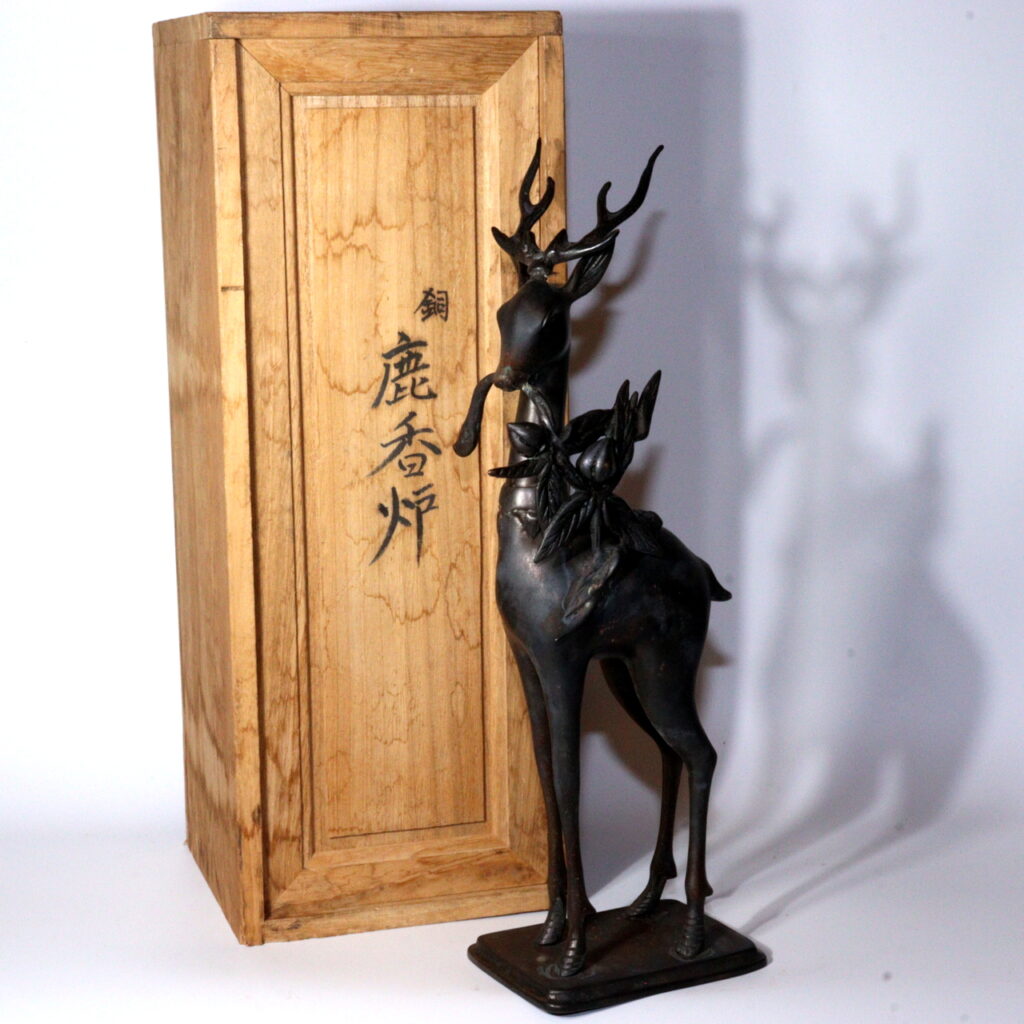
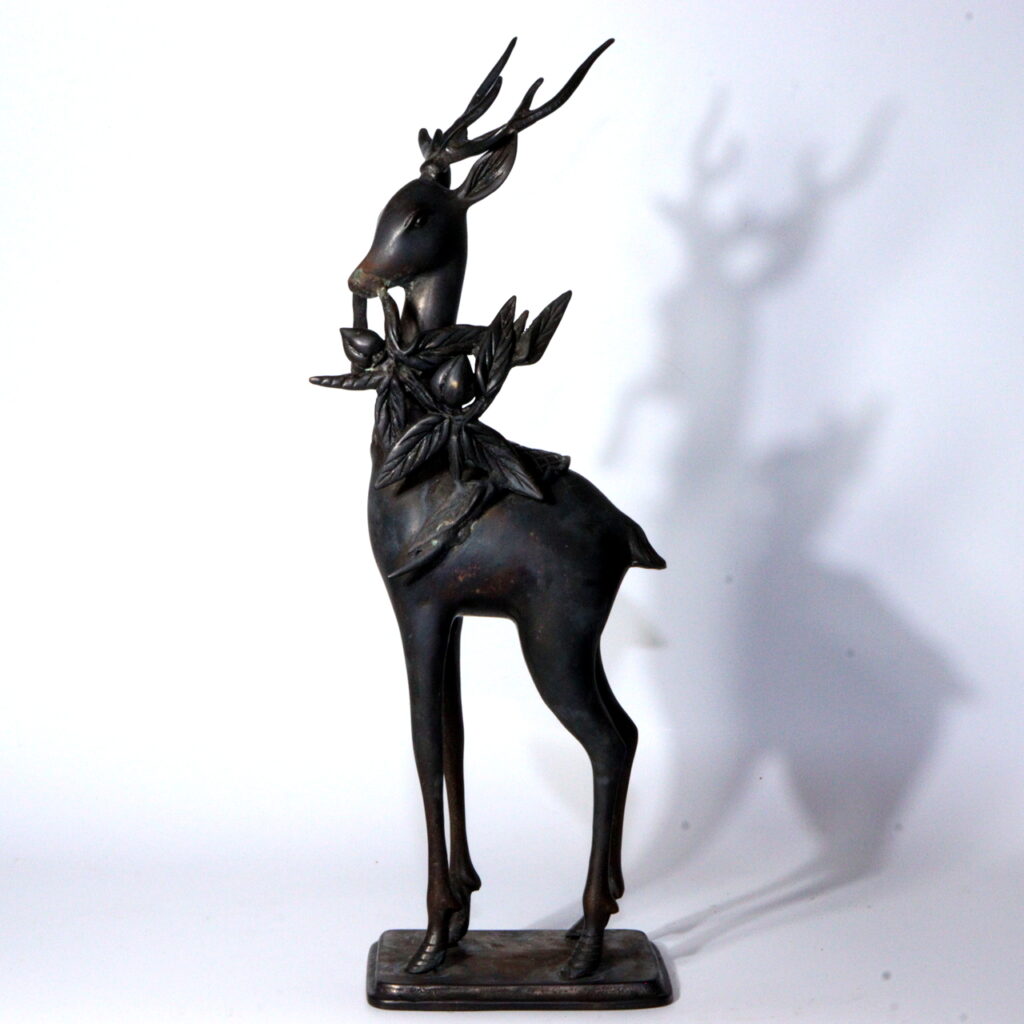
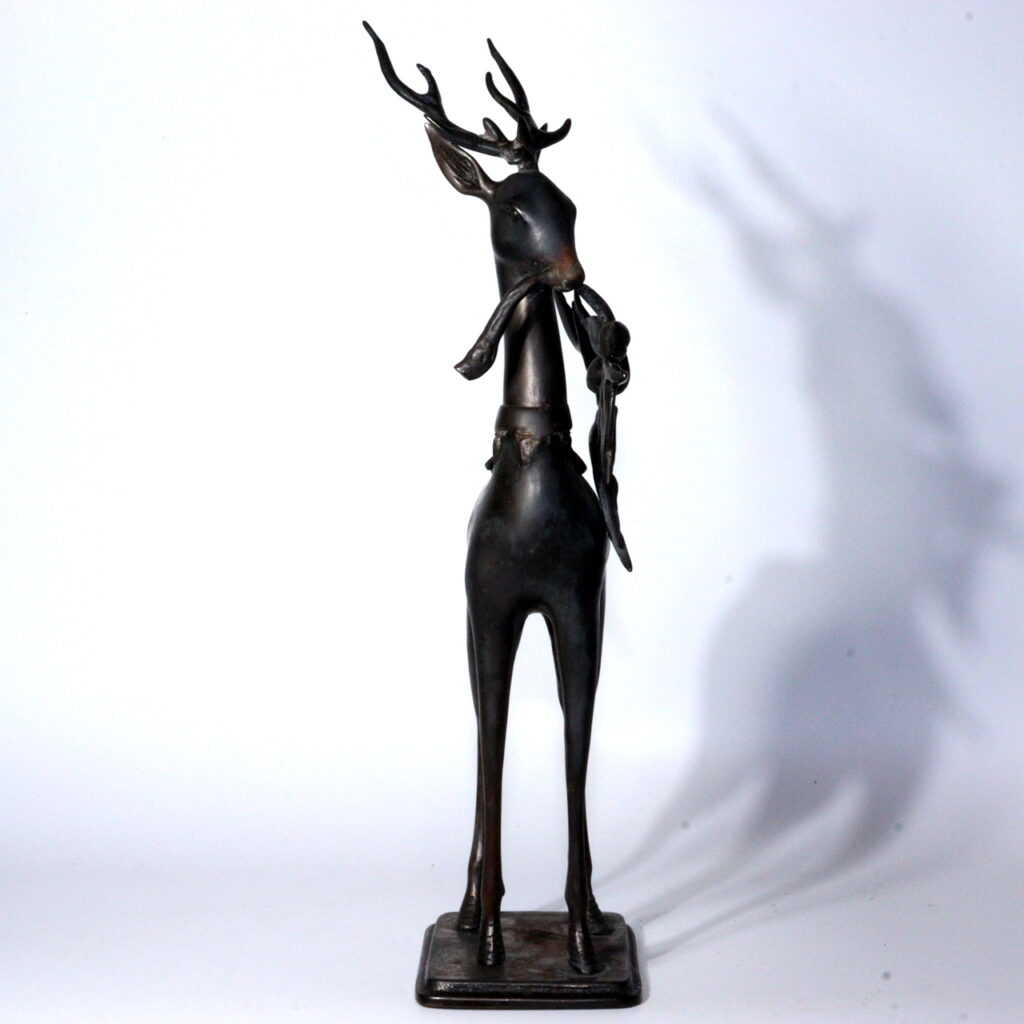
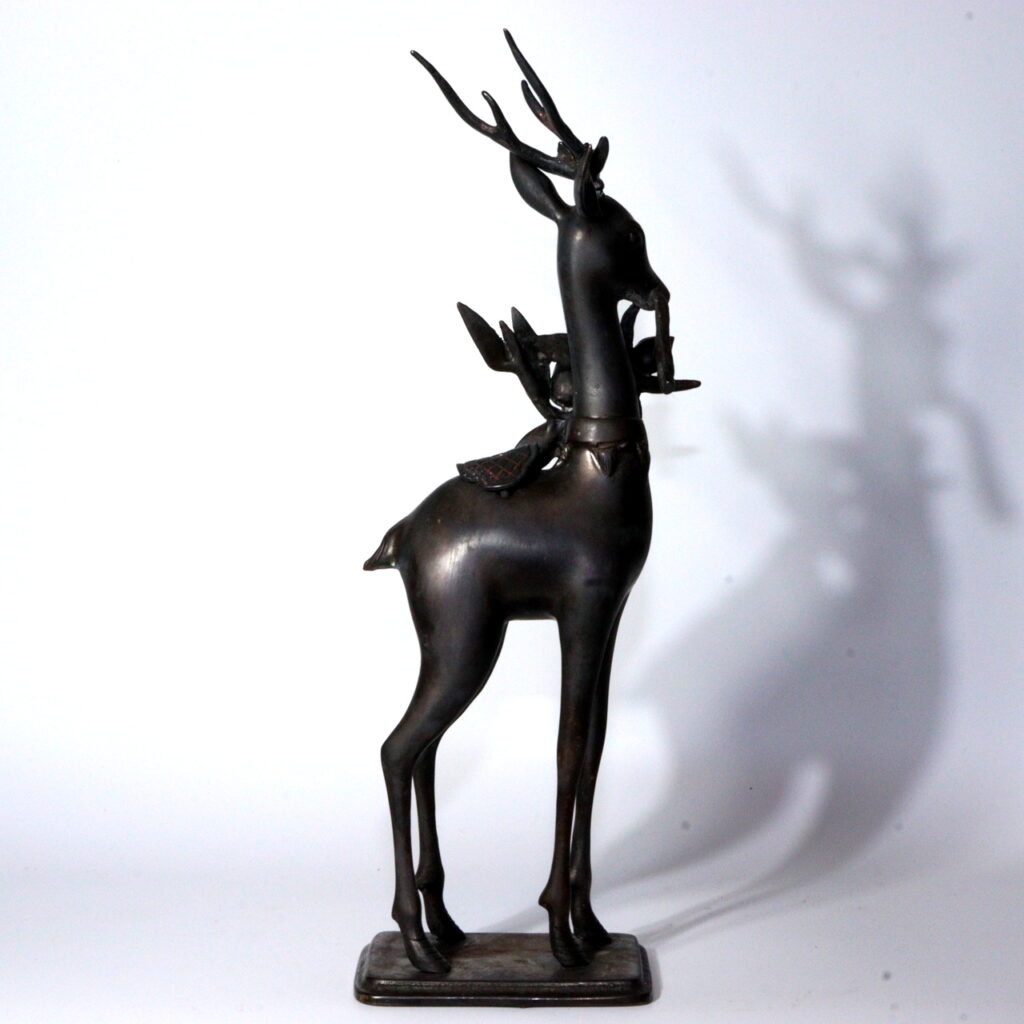
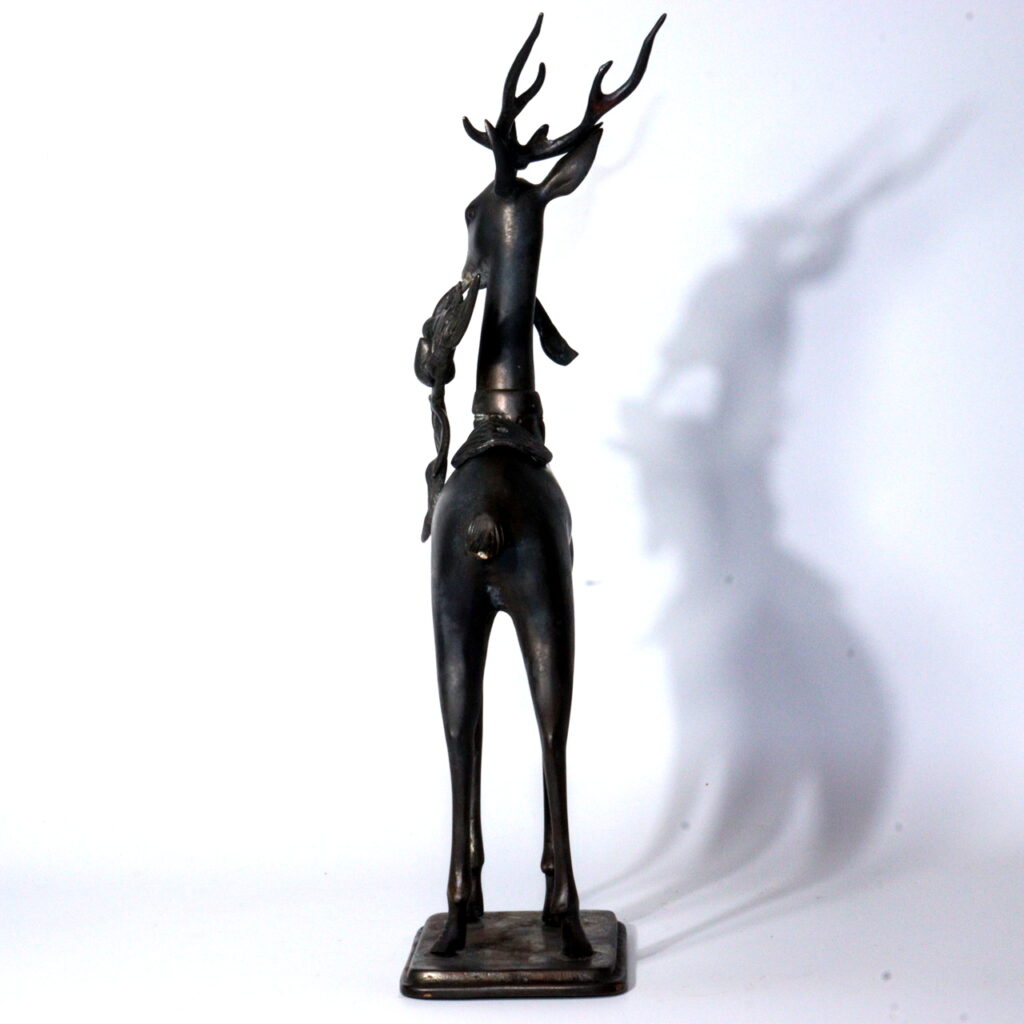
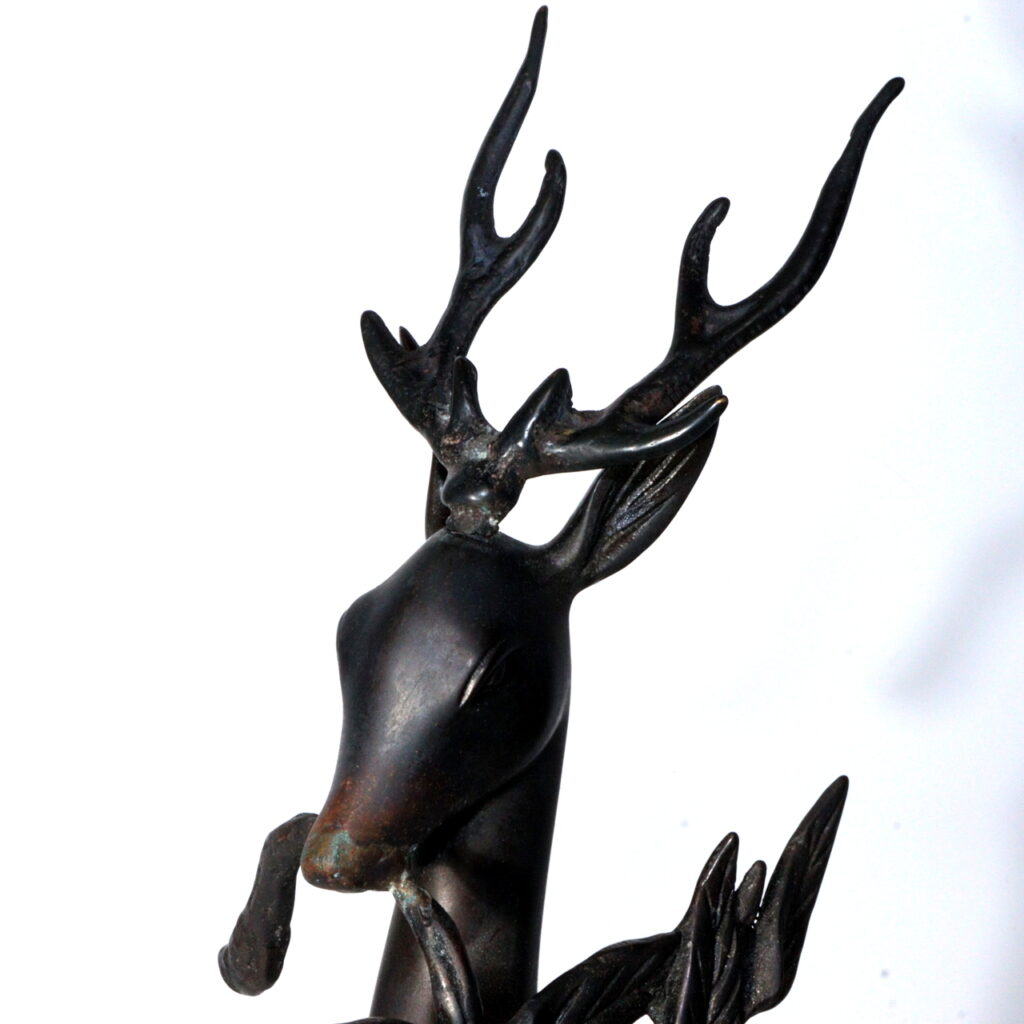
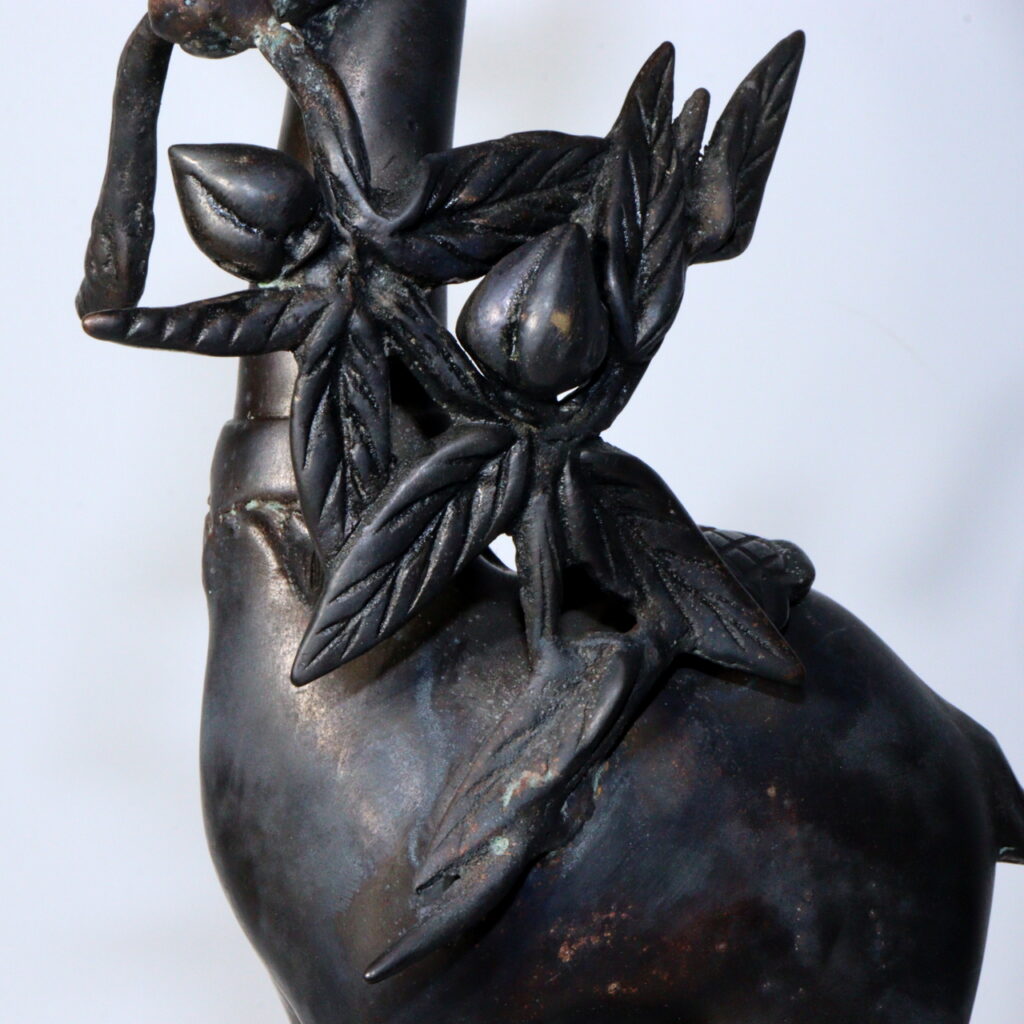
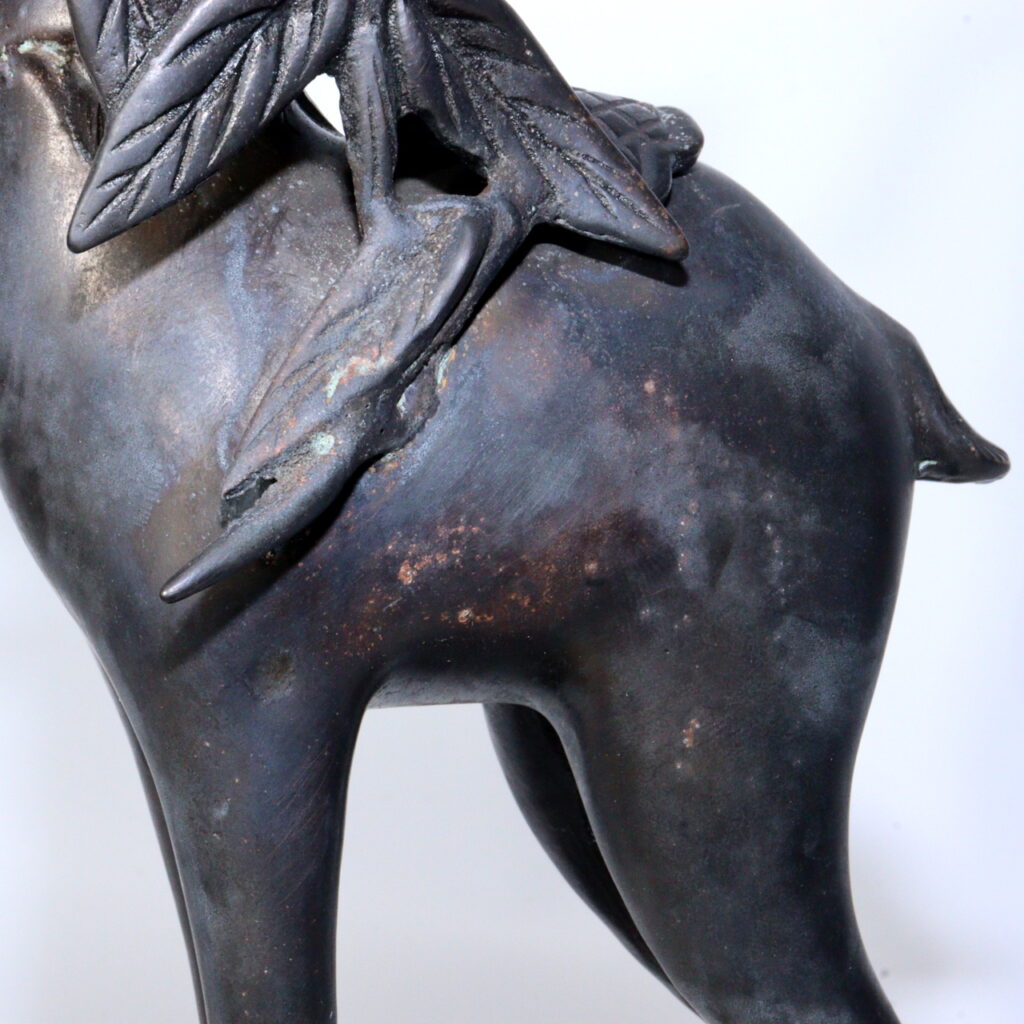
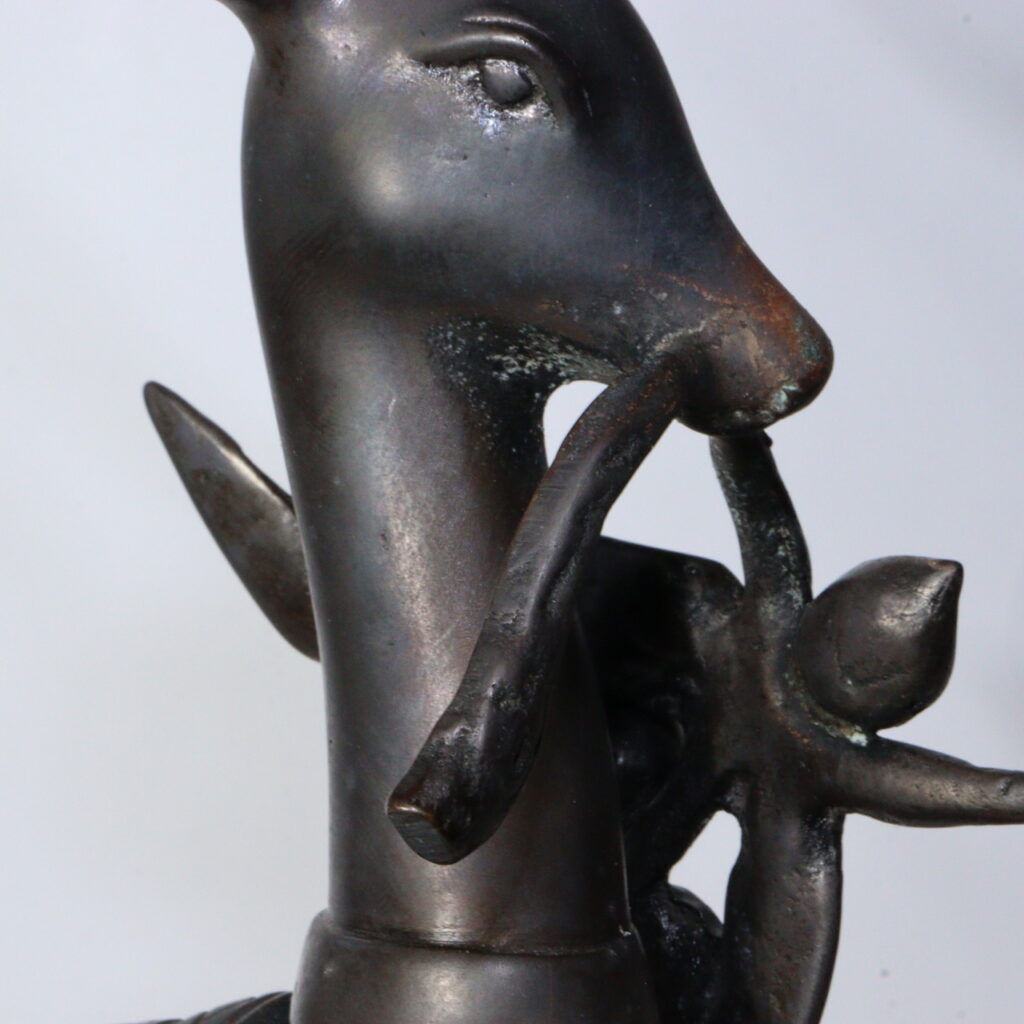
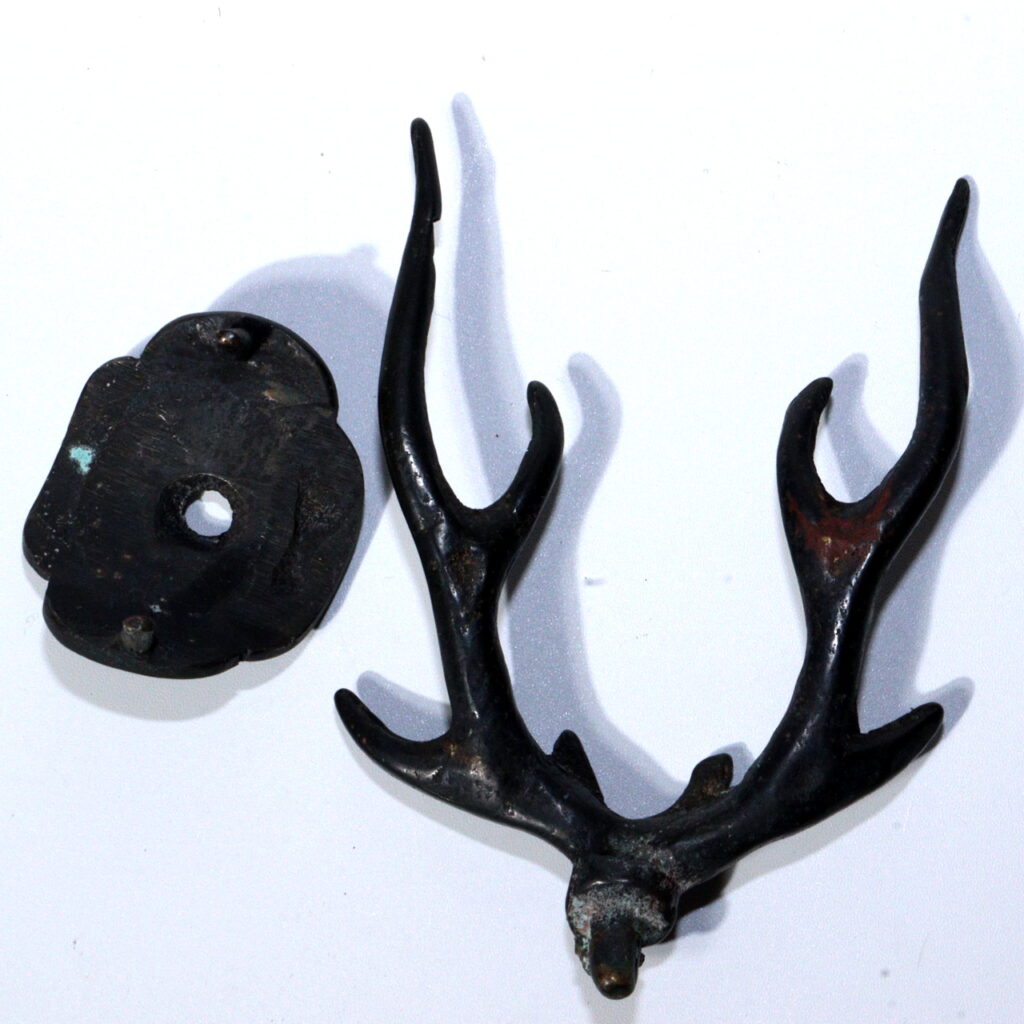
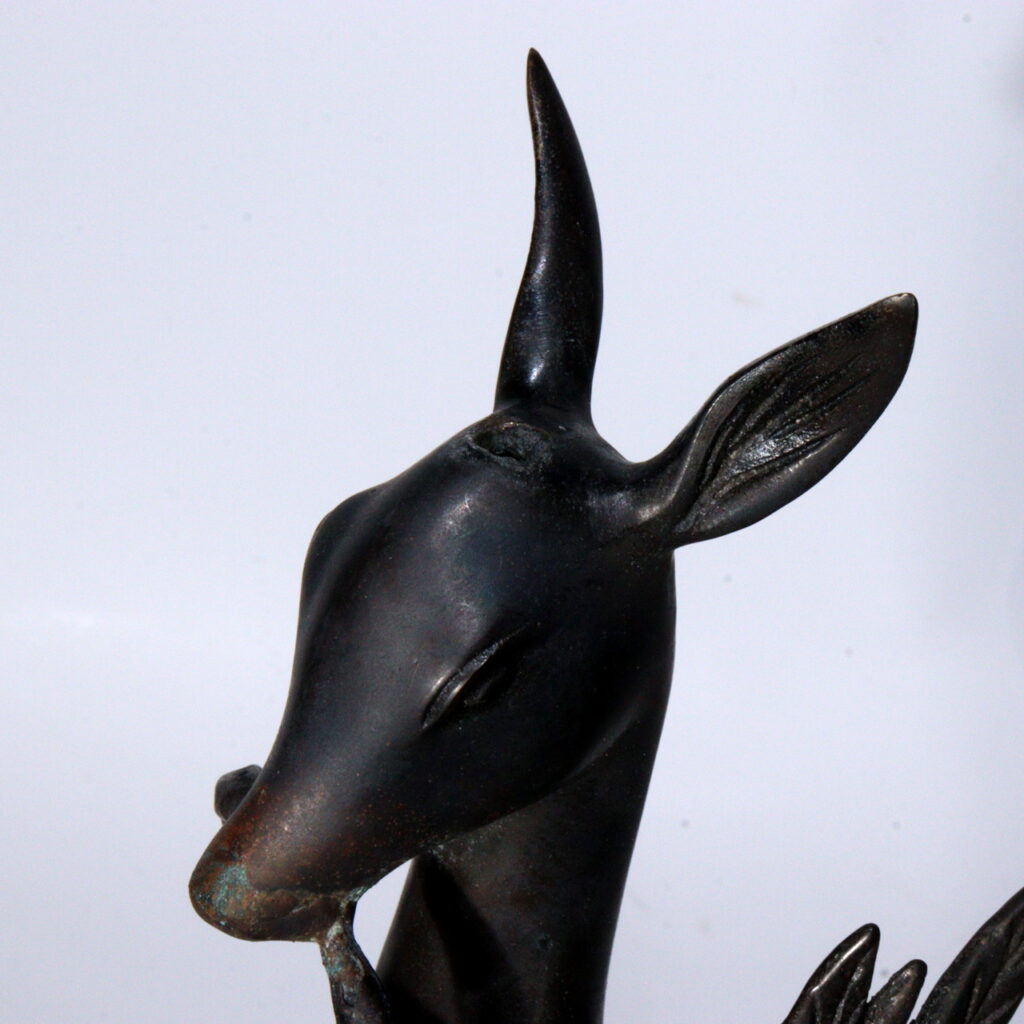
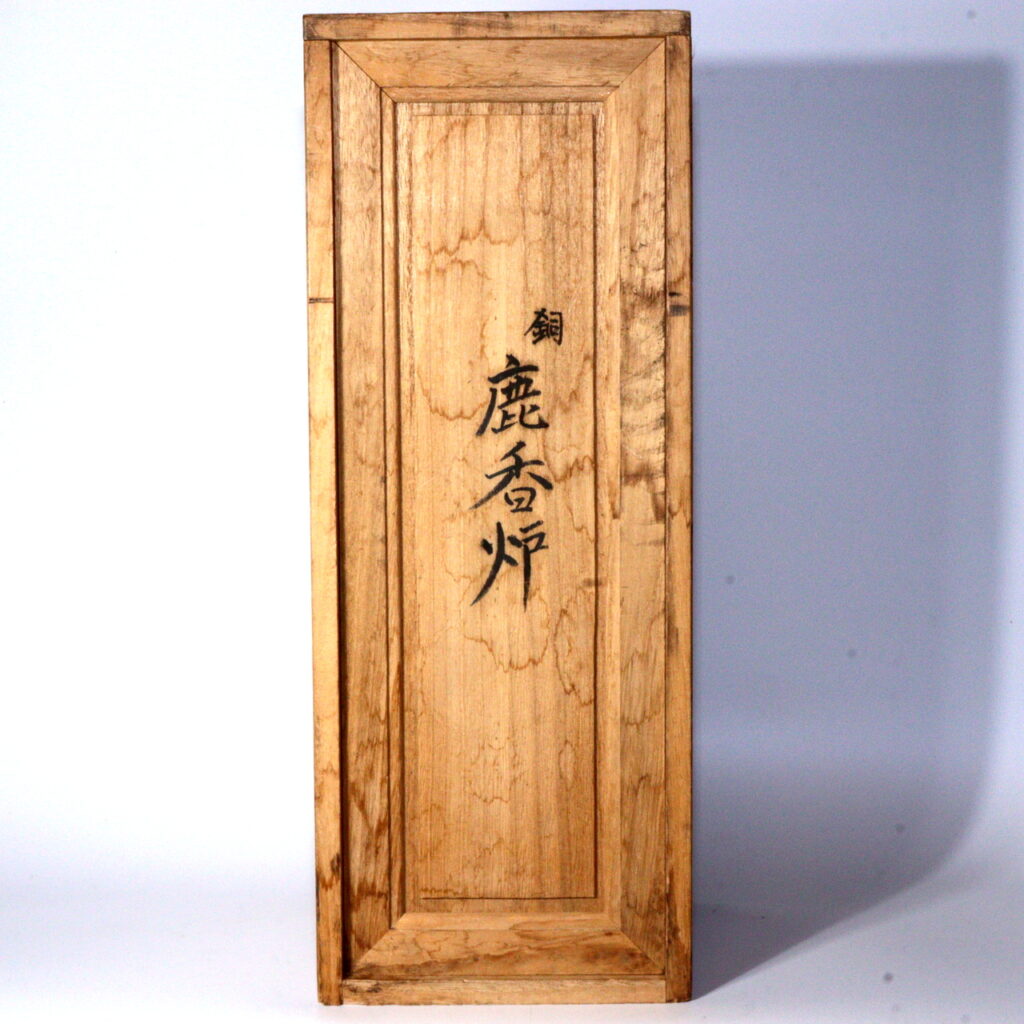
A graceful fusion of nature, faith, and artistry in Japanese bronze craft
Among Japanese antiques that bridge spirituality and fine craftsmanship, the bronze incense burner holds a unique place. This charming censer, cast in the form of a deer, is not only a work of art but also a vessel of symbolism—evoking harmony with nature and the meditative spirit of the tea ceremony and Buddhist incense rituals.
Its gentle form and aged patina speak of centuries-old devotion to both aesthetics and faith, reflecting the Japanese belief that beauty lies in stillness and simplicity.
The Story Behind This Piece
The deer has long been a sacred symbol in Japan, deeply connected with Shinto and Buddhist traditions. In Nara, where deer are believed to be divine messengers of the gods (Shika), such imagery became part of temple art and incense culture from the Edo to Meiji periods.
This bronze incense burner, dating from the Meiji to early Showa era, exemplifies that intersection of devotion and design. It would have graced the altar of a home or temple, where the rising incense smoke symbolized purification, mindfulness, and connection with the spiritual world.
Unlike purely ornamental pieces, this deer-shaped censer reflects the Japanese ideal of “utsukushii mono ni kokoro ga yadoru” — “the heart resides in beauty.” Its presence was both aesthetic and meditative, encouraging reflection as the gentle fragrance of incense filled the air.
The Beauty and Craftsmanship
This incense burner is made of bronze, a material highly valued in traditional Japanese metalwork for its durability, luster, and ability to age gracefully.
The artist shaped the deer with delicate realism — from the gentle curvature of the antlers to the calm expression of its face — balancing grace with quiet strength.
The antlers and back lid are removable, revealing the inner chamber where incense would be placed. This functional design reflects the meticulous craftsmanship of the period, where even practical ritual tools were imbued with elegance and balance.
Over time, the bronze has developed a natural patina, enhancing its tactile depth and giving it the wabi-sabi character prized by collectors — the beauty of imperfection and transience.
Unlike ornate Chinese incense burners that favored elaborate dragon motifs, Japanese bronze censers such as this one emphasize organic simplicity, focusing on harmony with nature and spiritual calm.
Its Value for Collectors Worldwide
For collectors of Japanese antiques, this deer incense burner offers both cultural depth and sculptural beauty.
It stands as a bridge between Shinto symbolism and Buddhist ritual practice, embodying Japan’s distinctive approach to sacred art—where reverence and artistry coexist seamlessly.
Today, such pieces are treasured by connoisseurs of Japanese bronze figures, tea ceremony tools, and Buddhist artifacts alike.
They are often displayed in modern interiors, where their presence adds a serene, meditative atmosphere — connecting the viewer to centuries of Japanese spirituality and design philosophy.
As an object of traditional craftsmanship, it also represents Japan’s enduring dialogue between man, material, and nature — a dialogue that continues to inspire collectors and designers across the world.
Conclusion and Product Link
This bronze deer incense burner is a poetic reminder of Japan’s reverence for both art and spirit.
With its elegant form, subtle patina, and sacred symbolism, it embodies a timeless beauty that transcends eras.
You can view this piece here:
👉 Koedo Sun Art – Product Page
If this item has already found its new home, please explore our other Japanese antique collections here:
🔗 https://koedo-sun-art.com
Category: Item Stories / Bronze Figure / Incense & Buddhist Tools
Tags: Japanese antiques, Meiji, Showa, bronze, incense burner, Buddhist art, Shinto symbolism, deer, craftsmanship, wabi-sabi, traditional Japanese design, Japanese culture